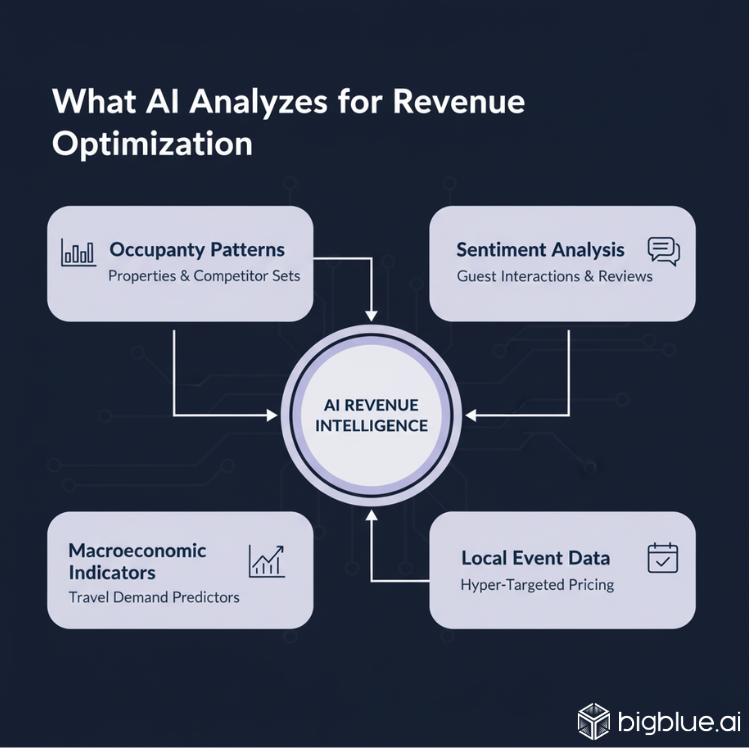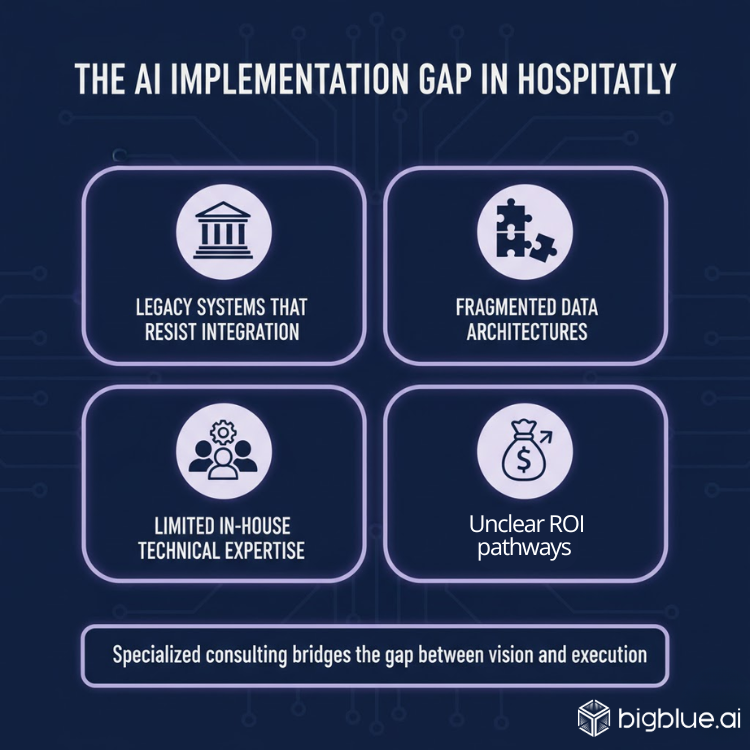The hospitality sector's AI adoption trajectory reveals a critical insight: technology implementation without strategic integration yields marginal returns. While competitors deploy chatbots and automation as isolated solutions, market leaders are reconstructing their entire operational architecture around predictive intelligence and data-driven decision frameworks.
Recent market analysis indicates hospitality organizations leveraging AI-driven revenue management systems outperform traditional operators by 15-25% in RevPAR optimization. Yet the competitive advantage extends far beyond pricing algorithms.
Forward-thinking properties are deploying machine learning models that synthesize:
The differentiation factor isn't technological sophistication, rather it's strategic execution. Properties that excel treat AI not as a cost-reduction mechanism but as a revenue intelligence infrastructure that informs every operational decision from staffing optimization to inventory management.

Technology deployment is temporary; capability building is permanent. Progressive hospitality groups are investing in training programs that transform their management teams into data-literate decision-makers who can interpret AI-generated insights and integrate them into strategic planning processes. The competitive advantage shifts from having access to predictive models to having teams that can interrogate those models, understand their limitations, and apply their outputs to nuanced operational contexts that algorithms alone cannot navigate.
Perhaps the most underestimated factor in AI success? Access to specialized data professionals who understand both hospitality operations and technical architecture. These hybrid talents—data scientists with domain expertise—are rare and increasingly valuable. Organizations that lack the resources or timeline to build internal data teams are turning to embedded consulting models where external specialists integrate directly into operational structures, delivering both immediate solutions and knowledge transfer.
Most hospitality executives recognize AI's transformative potential. The friction? Bridging the chasm between strategic vision and operational reality.
Common barriers include:
This is where specialized consulting becomes critical. Successful AI integration requires mapping existing operational workflows, identifying high-impact intervention points, and designing solutions that align with specific business objectives rather than generic industry best practices.

AI in hospitality isn't about technological novelty—it's about constructing a sustainable competitive advantage through superior decision-making architecture. Organisations that approach AI implementation strategically, invest in capability building, and access specialized talent position themselves to dominate market share as the industry's data sophistication baseline continues to rise.
The question isn't whether to adopt AI. It's whether you'll lead the transformation or react to competitors who already have.
At Big Blue AI we deliver end-to-end AI & Data implementation through consulting, training, and embedded data expertise tailored to hospitality operations. Book a call with us to assess how we can help your organisation transform data infrastructure into a revenue engine.